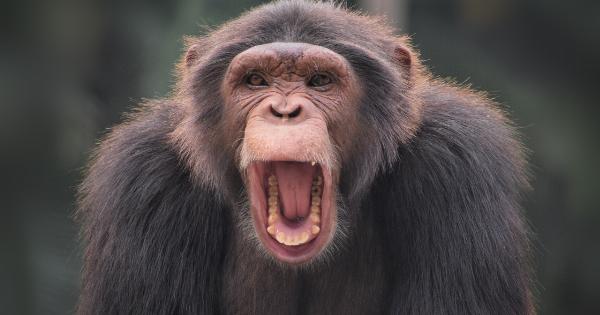Oral apes are a common phenomenon where people repeatedly clack their tongue against their teeth or the roof of their mouth. This clacking noise can be quite irritating, and many people are unaware that they are doing it.
Moreover, this habit can have serious consequences on your health if it persists. Oral apes are not only a social stigma but could also be a sign of an underlying medical condition.
Causes of Repeated Oral Apes
This habit can develop due to a variety of reasons, and it’s often a subconscious habit that individuals are not aware of.
In most cases, oral apes occur due to stress, anxiety, and other psychological disorders like Obsessive-Compulsive Disorder (OCD). When you feel anxious or stressed, your body’s natural response is to find an outlet to release that anxiety. For some people, oral apes can help relieve that tension, even though it’s a temporary solution.
Also, some individuals develop this habit as a response to a traumatic event, which often leads to the development of anxiety disorders.
Oral apes can also result due to some physical conditions like sleep disorders, dehydration, and nutrient deficiencies like magnesium or potassium deficiency.
In some cases, individuals with oral apes may also have certain neurological disorders, hyperthyroidism, or Parkinson’s disease. It’s crucial to understand the underlying reason for oral apes, as it could have potentially serious health consequences if left untreated.
Consequences of Repeated Oral Apes
Oral apes can lead to several health problems, including tongue biting, gum bleeding, and dental erosion. When your tongue keeps clacking against your teeth, it could damage the enamel, leading to tooth sensitivity and decay.
Moreover, this habit can make you prone to oral infections, especially if the oral apes lead to broken skin or wounds in your mouth. Apart from dental problems, long-term oral apes can lead to jaw pain and muscle spasms, which are quite painful and could persist if left untreated.
Oral apes are also linked with several psychological and emotional conditions. People who repeatedly clack their tongue often suffer from anxiety, depression, insomnia, and poor quality of sleep.
The persistent noise of oral apes can interrupt your ability to sleep, leading to sleep deprivation that exacerbates other health problems. These sleep issues only add to the stress, which could cause a vicious cycle of anxiety and poor oral health.
Treatment Options for Oral Apes
The treatment of oral apes depends on the underlying cause. For individuals who developed this habit due to psychological reasons, therapy and counseling would be the best option.
A mental health professional can help identify the cause of the anxiety or stress and develop coping mechanisms to deal with it. Cognitive-behavioral therapy is often recommended to treat OCD, anxiety disorder, or depression.
In some cases, medication may be needed to manage the underlying psychological condition. For physical causes of oral apes like nutrient deficiencies or sleep disorders, addressing the root cause would be the first step towards recovery.
Nutrient deficiencies can be treated with supplements or dietary changes, and sleep disorders can be treated using various methods like CPAP therapy or sleep apnea machines.
If oral apes lead to dental problems, a visit to the dentist is recommended. An experienced dentist can diagnose the extent of the tooth decay and suggest appropriate treatments, including fillings, root canal therapy, or extraction.
Changes in diet and daily oral hygiene habits can also help maintain good oral health.
Conclusion
Oral apes are often a harmless habit that individuals develop, but they could lead to serious health consequences if left untreated. Although it’s a subconscious habit, it’s crucial to identify the underlying cause and treat it accordingly.
Long-term persistent oral apes could lead to dental problems, jaw pain, and psychological issues like anxiety and poor quality of sleep. It’s essential to seek professional help if you’re struggling to control your oral apes habit and work towards a healthy and stress-free life.




























